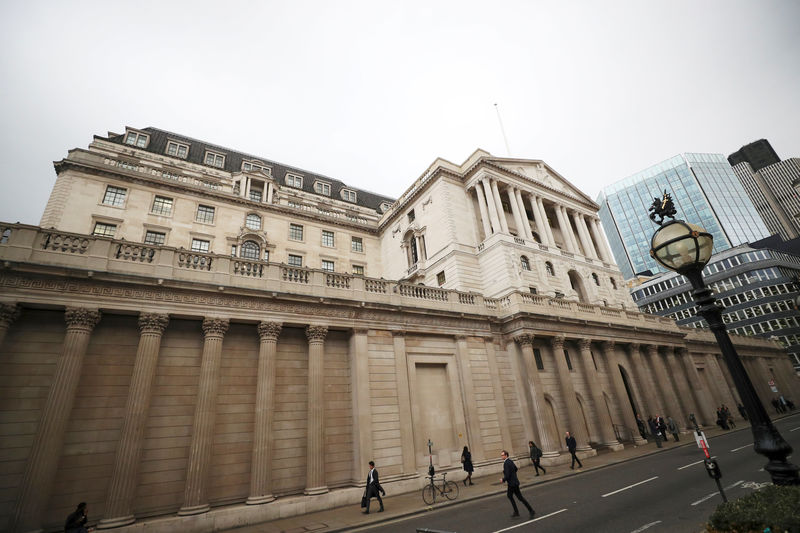By Geoffrey Smith
Investing.com -- The Bank of England raised its key lending rate by 0.5 percent to 2.25%, a 14-year high, as U.K. inflation continued to race ahead of its target despite an economic slowdown.
The Bank also confirmed that it will start active sales of U.K. government bonds in October, whittling down the portfolio it amassed during years of 'quantitative easing'.
The Bank said that the near-term outlook for inflation had improved, thanks to the new government's plans to cap energy prices for households and businesses, but it warned that it remains on guard against persistent pressures from sterling's depreciation and a still strong labor market.
It now expects inflation to peak at just under 11% in October, earlier and lower than its previous forecasts, but warned that it would still take some months to fall back below 10%.
"In and of itself, the Government’s Energy Price Guarantee will lower and bring forward the expected peak of CPI inflation," the Bank said. "This might be expected to reduce the risk that a long period of externally generated price inflation leads to more persistent domestic price and wage pressures, although that risk remains material."
It also pointed to the government's planned 'fiscal event' due on Friday, noting that this had the potential to materially alter the outlook for growth and inflation.
"Should the outlook suggest more persistent inflationary pressures, including from stronger demand, the Committee will respond forcefully, as necessary," it warned.
The dollar lost around half a cent against the pound on the news to trade below $1.13, while the yield on the benchmark 10-Year government bond rose by 5 basis points to 3.37%, touching the 11-year high that it reached on Wednesday. The BoE's decision to raise by only 50 basis points, coupled with the Federal Reserve's 75 basis point hike on Wednesday, means that the premium on dollar interest rates has widened again, making the dollar relatively more attractive.
However, analysts said the difference in stance was justified, given the U.K.'s weaker economic outlook. Samuel Tombs, an analyst with Pantheon Macroeconomics, said in a note to clients that it "provides reassurance that it is focused on the outlook for CPI inflation – which has improved since it last met — and evidence of emerging slack in the economy, rather than with arbitrarily keeping up with the Joneses."
Three members of the nine-strong Monetary Policy Committee - Jonathan Haskel, Catherine Mann and Dave Ramsden - voted for a bigger hike of 75 basis points, but the MPC's newest member, Swati Dhingra, voted to raise rates by only 25 basis points.
